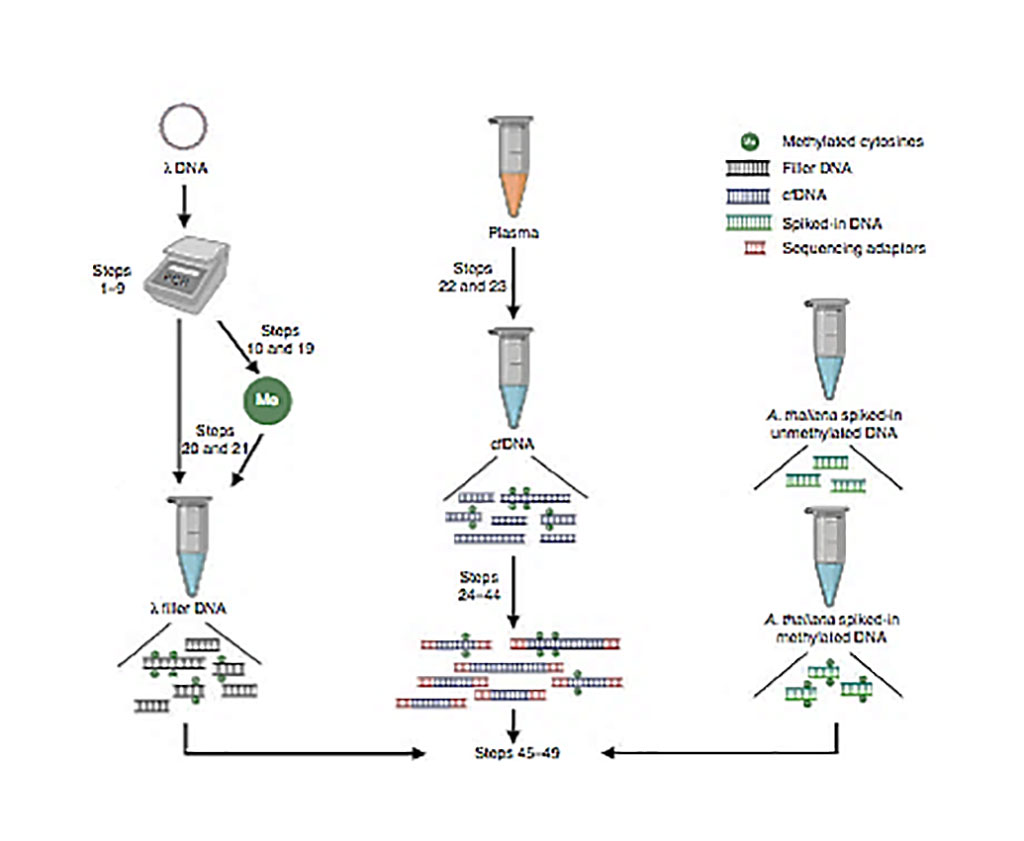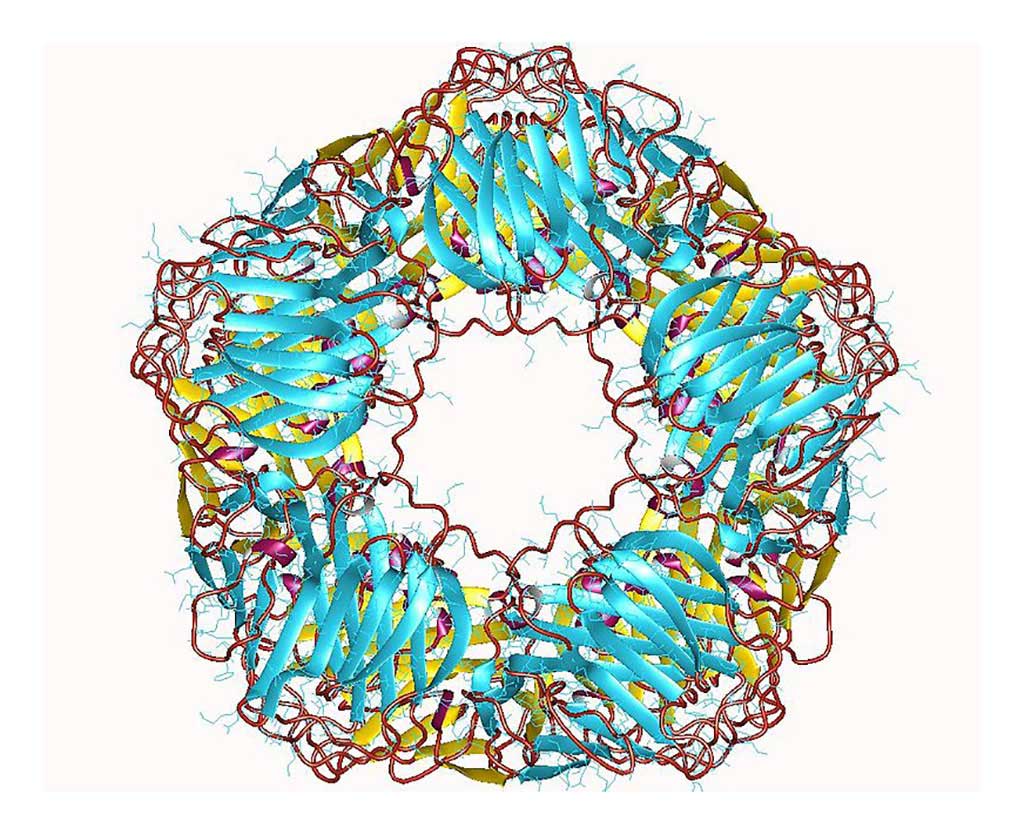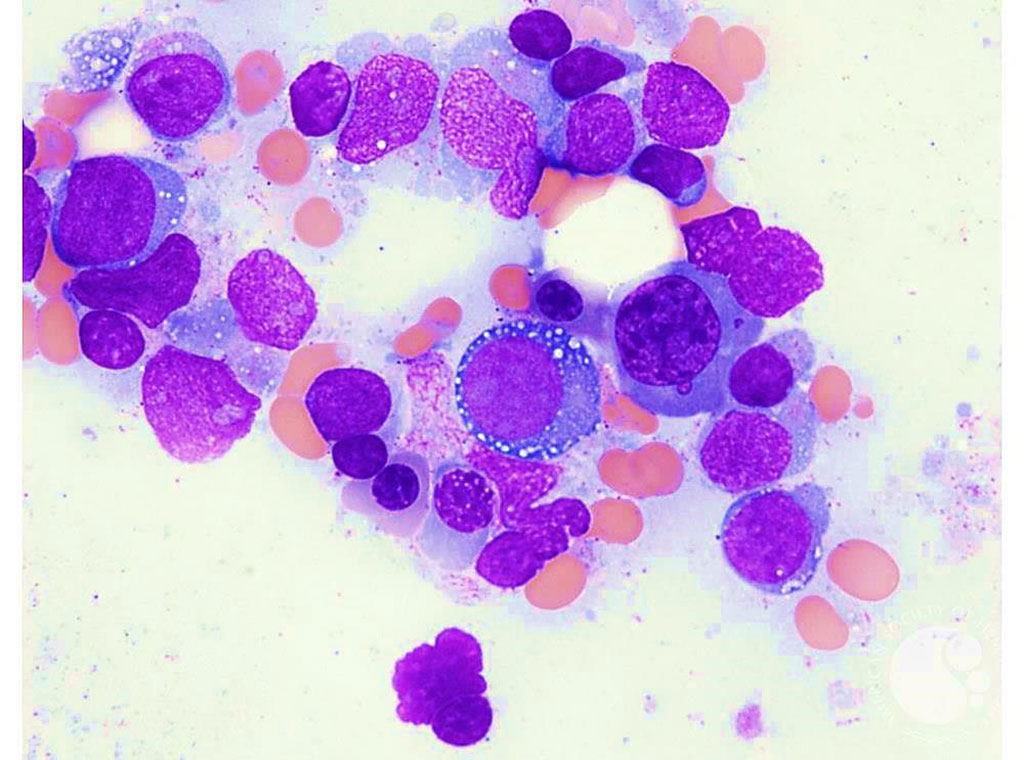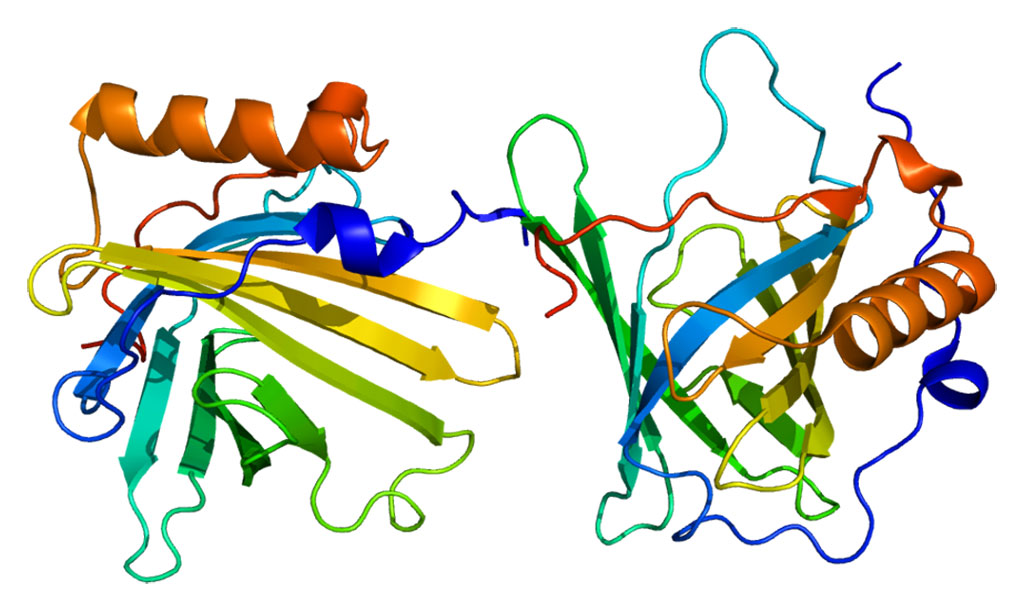Molecular Diagnostics
COVID-19 Lung Damage Caused by Persistence of Abnormal Cells
Several uncertainties still relate to the involvement of other organs in COVID-19. Besides indirect multi-organ injury, a few reports have suggested the possibility of direct injury caused by viral replication in brain, heart and kidney. More...19 Nov 2020


CRP Tracking Predicts Potential Outcome for Hospitalized COVID-19 Patients
By tracking the increase in circulating levels of the inflammatory biomarker C-reactive protein, doctors are able to predict whether newly hospitalized COVID-19 patients will suffer respiratory deterioration with the possible need for intubation. More...16 Nov 2020

Blood Cell Mutations Underlie Severe Autoinflammatory Disease
Severe adult-onset autoinflammatory disorders often manifest with overlapping clinical features. Affected individuals may develop episodes of high, spiking fevers, a pink or salmon colored rash, joint pain, muscle pain, a sore throat and other symptoms associated with systemic inflammatory disease. More...12 Nov 2020

In Other News
Molecular Blood Test Kit Detects Gastric Cancer Early
A Breath-Analysis Test for Rapid Diagnosis of COVID-19
A Liquid Biopsy for Diagnosis of Pediatric High-Grade Glioma
Single-Cell Sequencing Reveals Clonal Diversity Among AML Patients
Artificial Enzyme Increases Sensitivity of Alzheimer's Disease Immunoassay
Genetic Alterations Associated with Sporadic Congenital Hydrocephalus
Sensitive Detection Method Identifies Protein Clumps in Parkinson’s Disease Skin Samples
Inherited Causes of Clonal Hematopoiesis in Multiplicity of Whole Genomes
Single-Molecule Tethering Detects Nucleic Acids and Microorganisms
Novel Method Reclaims Resolution of Single-Cell RNA-Seq
An Electrochemical Bio-barcode Device for Home Disease Monitoring and Diagnosis
Germline Testing After Tumor Sequencing Uncovers Clinically Actionable Variants
A Novel Liquid Biopsy Technique for Brain Tumor Diagnosis
Novel CTC Culture Method Developed to Study Metastatic Cancer
The Dublin-Boston Scoring System Predicts Severity of COVID-19 Infections
Comprehensive Molecular Profiling Matches Pediatric Patients to Therapies
Urine-Based Liquid Biopsy Test Detects Urothelial Carcinoma
Analysis of Placental Cell Free DNA and RNA Predicts Gestational Complications
Exome Sequencing Identifies Genetic Loci Linked to the Fetal Syndrome Nonimmune Hydrops Fetalis
Mutations Disrupting Neuritogenesis Genes Confer Risk for Cerebral Palsy
Elevated Levels of Defective Mitochondrial DNA Predict Likelihood of Reproductive Success
Use of Dried Blood Samples Facilitates Tracking of COVID-19 Antibodies
Bacterium and Viral Coinfection Contributes to Postinfectious Hydrocephalus
Genetic Testing channel of LabMedica brings the latest in molecular genetics, cytogenetics, and epigenetics, and methods from PCR to FISH, and more.










